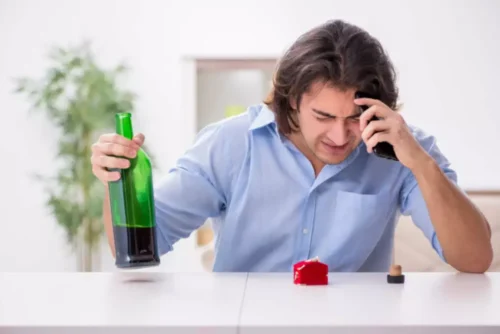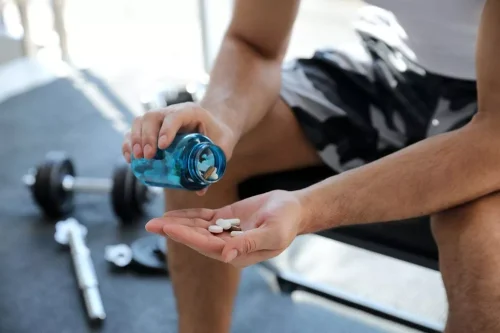
Like nearly all of the body’s organs, the liver functions according to circadian rhythms. Alcohol interferes with these circadian rhythms regulating the liver, and can contribute to compromised liver function, liver toxicity, and disease. Treating anxiety can help reduce insomnia and improve overall sleep quality. alcohol insomnia They may turn to alcohol to reduce their anxiety symptoms, which also increases insomnia, exacerbating their anxious feelings. More severe cases of chronic insomnia may require different treatment strategies. Different forms of therapy, mindfulness, meditation, or hypnotherapy, can address insomnia symptoms.
2 Neurochemistry of alcoholism effects
Research from 2024 shows this change to sleep architecture persists across consecutive nights of pre-sleep alcohol. Alcohol and sleep loss from previous nights of alcohol insomnia can trigger or worsen anxiety, and anxiety can make it much harder to drift off. RISE users even say stress and anxiety are their biggest challenges when it comes to getting a good night’s sleep.
1. Common sleep-related problems

It’s not because I don’t appreciate a glass of wine with a great meal, or a few beers on a hot summer evening. It’s because I know what alcohol can do to sleep and healthy circadian rhythms. Having a beverage containing alcohol in the evening from time to time may slightly disrupt sleep, but consuming alcohol for multiple nights in a row or every night carries a greater risk of insomnia.
How Does Alcohol Affect Sleep?

At post-treatment, the relaxation group reported better sleep quality than the control group on a 10-point rating scale. The study had several methodological limitations, including no screening for occult sleep disorders, poor outcome measure selection, and no active control group. Differences in activity in the fast frequency bands (beta and gamma) duringsleep between alcoholics and controls are less consistent. Feige et al. (2007) reported elevated beta activity in REM and https://ecosoberhouse.com/ gamma activity instage 2 NREM sleep, but only in data from the adaptation nights, with no differences forsubsequent placebo nights from their drug study. (2002) reported a trend for elevated beta activity in alcoholics across theentire night at baseline that became a significant difference during a recovery nightfollowing a night of partial sleep deprivation. (2009b) did not see any differences between alcoholics and controls in highfrequency EEG activity during sleep.
- It was also not always clearly stated that subjects were abstinent from cross-tolerant sedatives in addition to alcohol.
- There is a growing body of literature demonstrating a bidirectional relationship of insomnia with alcohol consumption and alcohol misuse.
- They can also suggest the best ways to manage withdrawal symptoms, which can include sweating, anxiety, vomiting, and tremors — all of which can impact sleep.
- In her spare time, you can often find her exploring nature with her husband and three children.

While heavy alcohol use can trigger insomnia, the opposite is also true. People with insomnia have an increased risk of developing alcohol use disorder, potentially because many individuals turn to alcohol as a sleep aid. How much alcohol you drink and when you drink it can both influence sleep. If you are one of the nearly two thirds of Americans who drink alcohol, chances are, you’ve had a drink in the hours before bedtime. Maybe you enjoy a glass of beer or wine after dinner, or your weekends include drinking with friends at bars or social events. However, in the second half of a night’s sleep, alcohol diminishes the amount of REM sleep.
Alcohol and Sleep-Related Problems
Insomnia results from a mismatch involving persistent activity in wake-promoting structures during NREM sleep, leading to simultaneous sleep and wake activity along with psychophysiological arousal (Buysse et al., 2011). From a clinical perspective, insomnia occurs in vulnerable patients with predisposing factors, such as having a family history of AD or certain genetic traits. Acute insomnia is triggered in them by stress promoting events (precipitating factors).
Older men who consume alcohol are more likely to have a worse sleep profile, characterized by waking tired and waking several times during the night. You might be able to banish alcohol insomnia fast — 80% of users get better sleep within five days. We’ve covered more on how long before bed to stop drinking alcohol here. Going sober isn’t always easy, though, and it may not be safe to quit alcohol cold turkey.
Learn More About Nutrition and Sleep
However, again, thereare other possible mechanisms that may also contribute to these effects. In a larger study, Colrain et al. (2009)studied 42 abstinent long-term alcoholics (27 men) and 42 controls (19 men). As in theprevious study (Nicholas et al. 2002), alcoholicswere significantly less likely to produce K-complexes than controls. P2 amplitude was,however, smaller in alcoholics than controls with the difference being largest at Cz,where the component was maximal, but smaller at other sites (see Figure 5).
Heart rate increase

As a result, they may consume alcohol to speed up falling asleep, but evidence shows this technique does not improve sleep quality. An indirect test of the neuronal loss hypothesis of K-complex amplitude deficitin chronic alcoholism was conducted using gray matter volumes from structural MRI dataacquired from the subjects in Colrain et al.(2009). Statistical models were constructed to determine the extent to whichcortical and subcortical volumes could predict evoked potential component amplitudes insleeping alcoholics and controls.
0 Sleep homeostasis and circadian problems with alcohol abuse
- From a general neurophysiological perspective, the onset and maintenance of sleep involves depolarizations of the thalamocortical neural circuits (Saper et al., 2010).
- This should give the body enough time to metabolize the alcohol and get it out of one’s system, allowing them to enjoy unaffected sleep,” explains Dr. Hsu.
- Being a sedative and depressant of the central nervous system, alcohol can increase feelings of tiredness and sluggishness.
- While drinking alcohol before bedtime may help you feel relaxed and sleepy, enjoying a nightcap puts you at risk of experiencing repeated wakings and low-quality sleep later in the night.
If left untreated, chronic sleep apnea can drastically impact your quality of life and lead to serious health concerns, such as weight gain and obesity, hypertension, stroke, memory impairment and heart failure. Alcohol further increases the effects of sleep apnea by relaxing the muscles in the throat, collapsing the upper airway and lowering oxygen levels. This not only worsens pre-existing sleep apnea but may also lead to episodes of sleep apnea in individuals who previously did not experience it. For many people, enjoying the occasional drink with friends or a glass of wine with dinner is something to look forward to. However, while you may feel more relaxed and drift off to sleep quicker after having a drink, when morning rolls around, you might find yourself wondering why you feel so groggy and tired—especially after falling asleep so easily. His research and clinical practice focuses on the entire myriad of sleep disorders.


